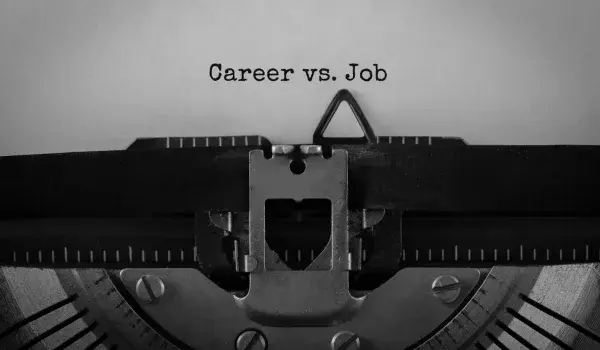Decoding Paychecks: What's the Difference Between Gross Pay and Net Pay
What is Gross Pay?
Your gross pay is the total amount of money that you earn from your labor before...

Understanding the difference between a career and a job is important for both employers and employees. If you are an employee, it has an impact on your goal-setting, personal growth, and overall professional satisfaction. If you're an employer, it can mean the difference between recruiting and retaining the best employees or losing them to the competition. Let's examine the difference between a job vs. career and the ways that it can impact employee satisfaction and your business.
A job can be described as any form of employment that provides immediate income. Everyone has bills to pay, including rent or a mortgage, utilities, car payments, new shoes for the kids, and so on.
A job can help fulfill immediate financial needs but it might not align with a person's goals for their overall career path. Each job can, however, be a stepping stone toward an employee's career goals. An example might be if someone wants to work in a management position eventually, so they take a sales job to gain experience along the way.
A career is a long-term journey that can encompass multiple job changes over time. In a best-case scenario, a person's career path can align with their personal goals, skill development, and ongoing growth. A career path can encompass a series of roles that allow the employee to professionally advance, develop new skills, and meet their personal goals.
There are some big differences between a job and a career that are important to understand. A job might last as little as a few months, while a career lasts decades. The job meets short-term financial needs, while the career path involves the potential for growth, skill-building, and alignment with personal values.
Let's look at an example of the differences using the role of a sales cashier at a retail chain store. One person might view the cashier role as a "job." It pays the bills while they go to night school for a couple of years in pursuit of a career in a completely different field.
A person who wants a career in retail management, however, looks at the same job very differently. It's a stepping stone, and with the company providing professional advancement and training, they can move up to a shift manager, department manager, store manager, and eventually even a regional manager position in the company. One might stick around for a short time if they view it as a job, while the other stays with the company for decades.
Employers can benefit from understanding the difference between a career and a job. When searching for new employees to hire, you can ask applicants about their career goals and select the ones who are the best fit for your company. You can also support employee growth when you have a sense of what career path they want to take.
Focusing on career paths rather than simply filling job roles will have a positive impact on company culture. Your employees will have improved job satisfaction and more loyalty to the employer when they know there are opportunities for skill development and advancement. This will reduce turnover and allow you to retain your best employees long-term.
Employees who want better pay, better benefits, and increased workplace satisfaction would do well to shift from a "job" mindset to a "career" mindset. Most jobs can be a part of the career journey if approached with the right attitude and mindset. Even if you view your current role as a "job," what skills can you develop that will make you a more valuable employee?
Set personal career goals. Determine whether you want better pay, more flexibility, more time off for family or other interests, or if you want to plan toward a comfortable retirement. Developing a personal roadmap can help you shift to a career mindset.
Network and develop relationships with coworkers. Don't just show up for the job and keep your head down. You never know what opportunities will open up down the road when you make these connections.
Seek roles aligned with your values. You might want to make a lateral move within the same company to better align with your career goals. What skills do you need to develop to get there?
Long-term employment becomes much more attractive to people when they know that the opportunity for career growth and advancement is there. Talent management is one of the many HR tasks that Exact Payroll can offer your company. We provide more efficient hiring, payroll, and HR solutions. Our talent management platform provides hundreds of hours of online training for employees that can help them shift from a "job" mindset to a "career" mindset.
Our career growth planning uses predictive analytics to identify top performers and retain more employees. When your employees have the opportunity to learn and grow, they'll view their position as a career path rather than as a job -- and they will repay you with loyalty.
Looking for support in building the right team for long-term career growth? Connect with Exact Payroll to streamline hiring and payroll solutions.
Your gross pay is the total amount of money that you earn from your labor before...
It can be challenging for businesses to determine how to classify workers, especially when hiring...
This guide will provide you with a comprehensive understanding of the various types of payroll...
3 mins
Exact Payroll Inc
3993 Huntingdon Pike Suite 110
Huntingdon Valley, PA 19006
Mon - Fri: 8:30AM - 5:00PM
Company
Subscribe to Newsletter